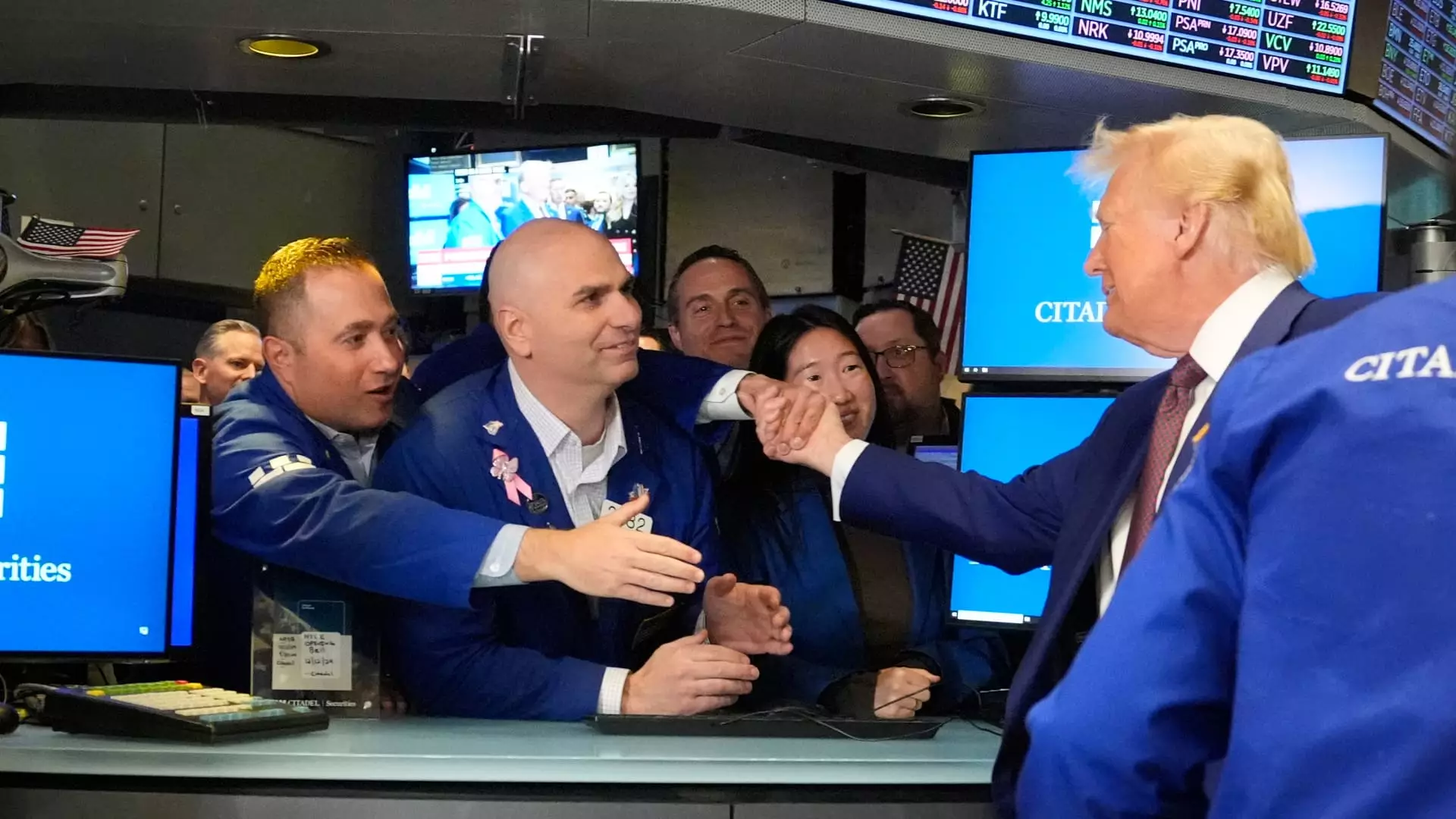On a significant Thursday morning, President-elect Donald Trump marked a ceremonial moment by ringing the opening bell at the New York Stock Exchange, a gesture typically signifying optimism and economic progress. Despite this pomp, Trump refrained from directly advising investors to increase their stock holdings, a move that carries both strategic caution and a veiled acknowledgment of the unpredictable nature of the market. “I don’t want to get into a situation where they do and we have a dip or something because that can always happen,” he remarked during an interview with CNBC’s Jim Cramer, indicating his awareness of the volatile dynamics that characterize stock valuations.
Trump’s first term saw the S&P 500 soar nearly 68%, a fact he consistently portrayed as a validation of his administration’s policies. This substantial growth can be attributed to several interconnected factors, including significant corporate tax cuts enacted during his tenure that effectively stimulated corporate earnings. Moreover, the Federal Reserve played a pivotal role by maintaining interest rates at historically low levels as part of its strategy to foster inflation and encourage economic growth. These conditions formed a fertile ground for stock price increases, further intertwining the stock market’s performance with the narratives popularized by Trump regarding economic success.
During his recent address, Trump hinted at the potential for future tax reductions aimed at incentivizing domestic production. His proposal, which suggested lowering corporate tax rates from 21% to as low as 15% for companies that manufacture within the United States, reflects a broader strategy to attract businesses to contribute to the national economy. This move is not just about numbers; it embodies a commitment to fostering an environment where American-made products thrive. Trump’s rhetoric signifies a shift towards a more nationalistic economic approach that seeks to bolster local manufacturing and create jobs domestically.
The significance of Trump’s presence at the New York Stock Exchange was not lost on Wall Street heavyweights, who attended his bell-ringing ceremony. Notable figures like Goldman Sachs’ CEO David Solomon and Pershing Square’s Bill Ackman underscored the concept that robust corporate performance directly correlates with increased stock prices and wage growth for the average American. Ackman articulated this sentiment, suggesting that a thriving corporate environment is integral to nationwide prosperity. His remarks encapsulated the belief that policies fostering business success will create a ripple effect, benefiting the broader economy and lifting living standards.
While Trump did not push for immediate investment in the stock market, his optimistic long-term vision for the country was clear. He asserted, “I think long term this is going to be a country like no other,” which underscores his confidence in the resilience and potential of the American economy. This sentiment was directed not just at investors, but also at the general populace, suggesting that the best strategy may be patience—underscoring a vital principle of economic engagement.
Trump’s interaction with the stock market is layered with complexity, driven by past performance, future promises, and the broader narrative of American exceptionalism. As investors navigate this landscape, they must weigh caution against potential gains, keeping in mind the pivotal influence governmental policies wield over market dynamics.

